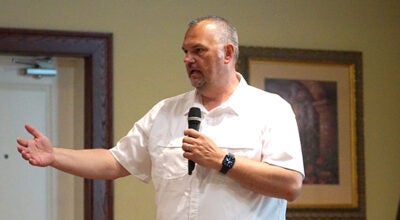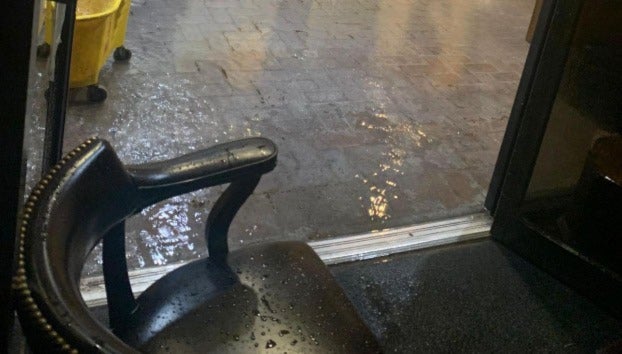Other Mississippi cities see benefits, costs of public pools
Published 12:00 am Sunday, February 15, 2015

Laurel’s natatorium regularly hosts swimming tournaments. The facility is funded through a 1-cent tax on hotels and restaurants. (Photo courtesy of the Laurel Leader-Call)
By Nita McCann
NATCHEZ — Public pools aren’t cheap, but the benefits to public health and the economy outweigh the costs say recreation officials in Laurel and Clarksdale.
The two cities have populations similar to that of Natchez.
Laurel’s recreation facilities include a natatorium with a 40,000-square-foot Olympic-sized pool, said Laurel Recreation Director Elvin Ulmer.
That city’s recreational facilities, including the natatorium – which opened in 1999 – are funded by a 1-cent tax on hotels and restaurants within the city limits, Ulmer said.
The cost of operating the facility is approximately $231,000 per year. including $122,000 the city pays U.S. Pools annually to manage the pool, according to Ulmer and Natatorium Operations Director Warren Holliday.
But the benefits of having such a facility far outweigh the costs, Ulmer said. The natatorium hosts five swimming competitions a year, bringing in swimmers and spectators from all over the state.
“So it’s a tourism draw,” Ulmer said. “It’s the jewel of our city.”
Not all swimming facilities are quite so elaborate. Clarksdale opened its pool, which is an outdoor facility, in 1952. In all, 2,888 people used the facility last year.
For 2014 alone, repairs cost $5,187.
“We’re having to pay for a lot of renovations,” said John Carraway, recreation director for the City of Clarksdale. Those expenditures include resurfacing the pool and installing a new chemical system.
In the last fiscal year, it cost Clarksdale $69,348 a year to operate the pool, which brought in $44,359 in revenue during that same time period, including a $42,300 grant from the nonprofit Delta Bridge Project.
“So we’re looking at being in the hole each year to the tune of almost $25,000,” Carraway said.
The largest expenditure was installing a new chemical pump and filter at a cost of $37,373, followed by payroll of $17,447.
“But the cost is worth it if our residents become healthier as a result,” Carraway said.
In Petal, just east of Hattiesburg, Recreation Director Tom Hardges said plenty of other ways exist to pursue fun and fitness
“We don’t have a pool,” Hardges said. “Not only that, but I’ve been here for 17 years and no one has asked for a pool. The biggest things here by far are baseball and softball.”
Given that, Petal recreation officials have not done research on the cost to build and maintain a pool, he said, adding, “there just hasn’t been a public outcry for a pool.”
But for swimming buffs and those just learning how to swim, Hardges said, the Petal YMCA and nearby Hattiesburg both have pools.
Lamar Evans, executive director of the Mississippi Recreation and Park Association, shares Hardges’ take on the issue.
Communities across Mississippi are building baseball fields and soccer fields, Evans said.
“But we’re not seeing anyone build a pool,” he said. “If they have water facilities, it’s a splash pad. It’s less cost and liability. Pools are dangerous, and you have to be able to afford the insurance. And you have to hire lifeguards.”
Most cities get such insurance through Mississippi Municipal League or they’re self-insured, he said.
Evans said that several years ago, when he worked for Jackson’s Recreation Department, the city’s 10 pools were only open 18 weeks out of the year. At other times, the city would cover the pools and lock the gates.
Even then, Evans said, “People would scale the fence to get to the pool. We’d put covers on them and that didn’t stop them.”
All that being said, Evans said he thinks it is a shame that cities are getting out of the pool business.
“Our children definitely need to learn how to swim and learn about water safety in general,” Evans said.





